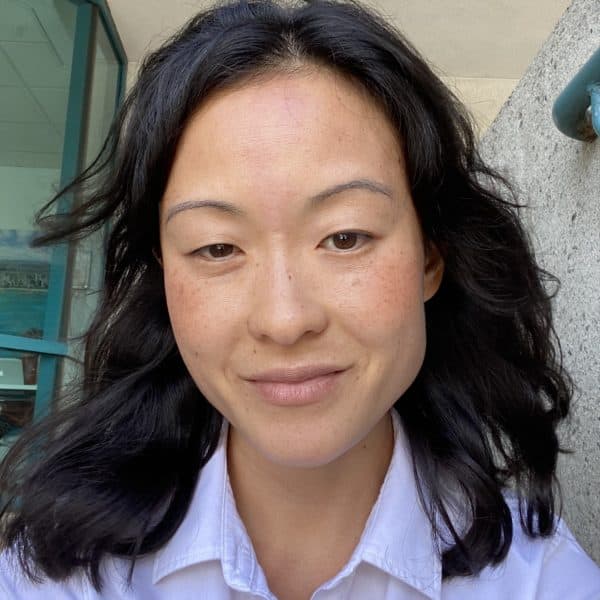Advertisement
In Boston, schools test ways to target student absences with sports, raffles and Saturday schedules
ResumeAt New Mission High in Hyde Park, many students jump into the school day by first hitting the gymnasium.
Shawn Polk, the school's health and physical education teacher, typically opens the gym doors around 7 a.m., cranking up catchy pop music over a loudspeaker as kids trickle inside to play basketball or volleyball.
On a recent Friday, she greets nearly two dozen students who've come to play. They quickly begin dribbling basketballs, shooting some hoops and laughing with their friends. In about 40 minutes, Polk blows a whistle to signal it's time for them to head to their homerooms.
“The morning is a great opportunity for them to get physically active prior to school,” Polk said. “The incentive to have a physical activity they’re interested in gets them in, gets them out of bed.”
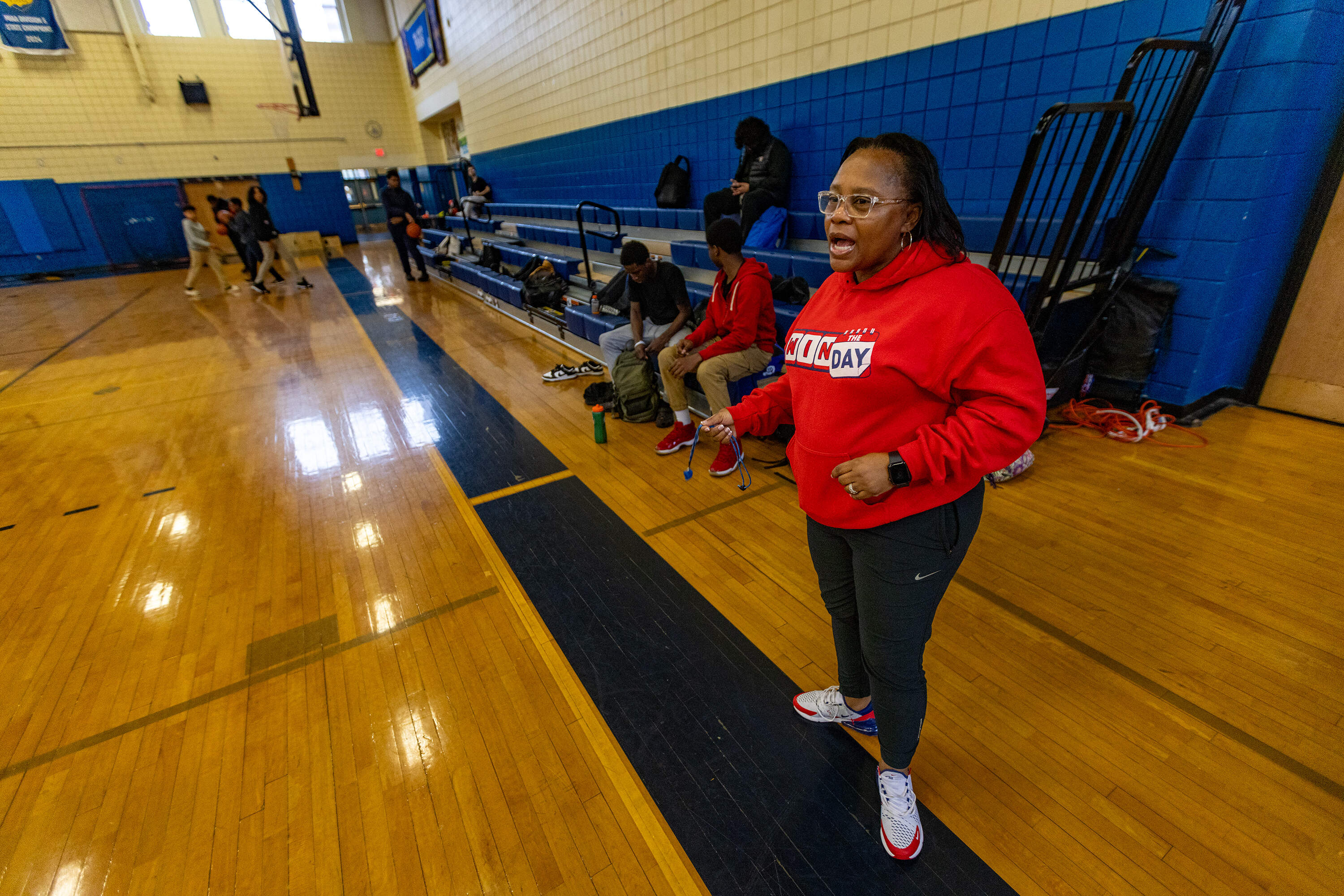
The effort gets some students out of bed and to class on time, but New Mission instructors say a little fitness and fun also helps kids stay in school. The high school is one of several in Boston to adopt the district's initiative to address spikes in absences, especially among older students, by adding new extracurriculars and other programs.
The district launched its "Win the Day" campaign in March, and students at New Mission say the early morning sports routine at their school has so far been well-received.
“Most of the time the gym is really packed," said ninth grader Jesdian Vargas, 15, as he changed out of basketball shoes to begin walking to class. "There’s a lot of good vibe going on throughout the gym. ... It’s like a fun experience.”
Saturday school, check-ins and sports
School leaders across the district not only wanted to improve attendance this spring semester, but also better identify why students don't show up. The issue took on more gravity as "chronic absenteeism" — defined here, the state says, as students who miss 10% or more of days they're enrolled for — soared across the U.S. after the pandemic. And, for some districts, student attendance was already a concern before COVID.
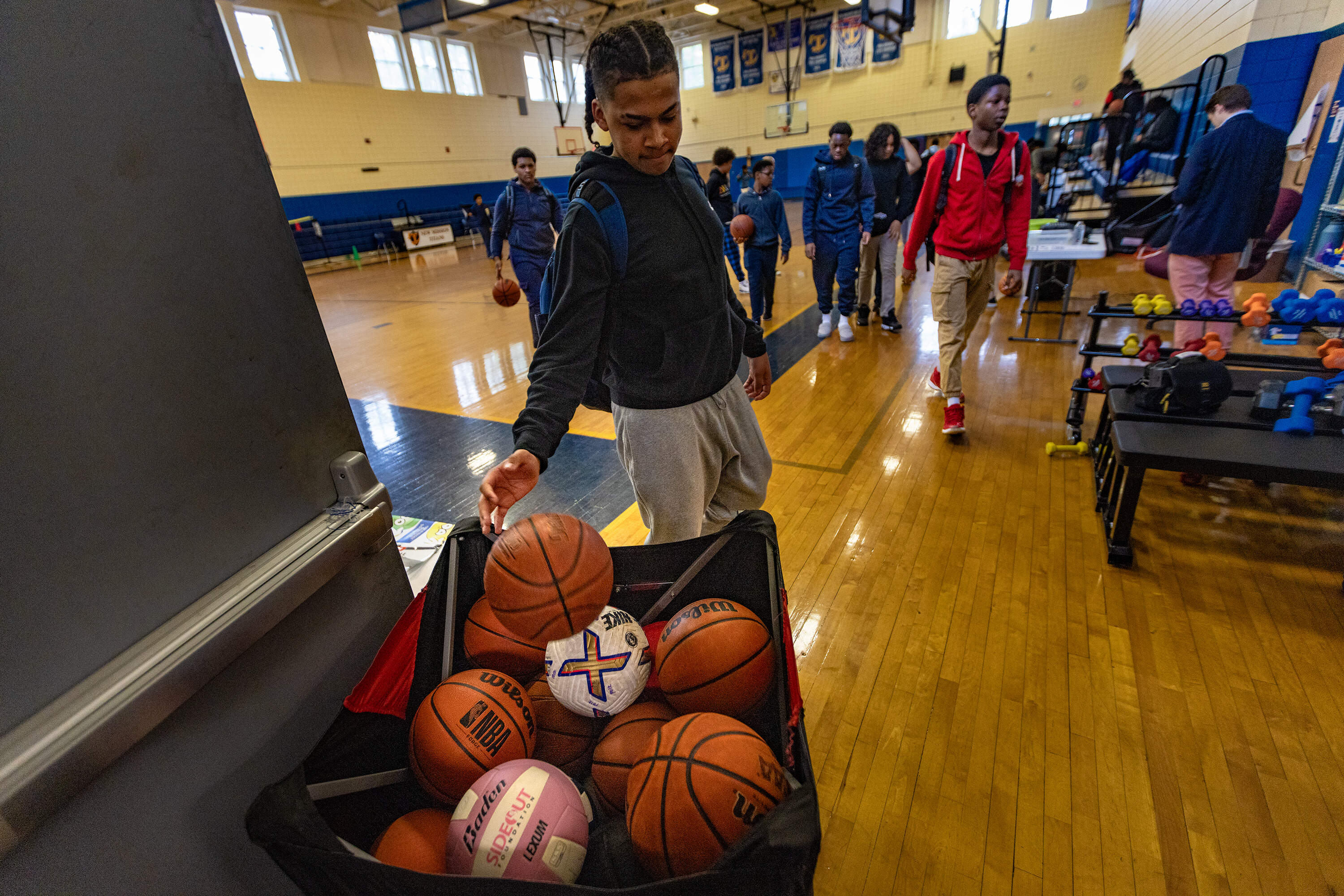
Statewide, 22% of students were considered chronically absent in the 2022-'23 school year, compared to 13% in 2017-'18, according to state education data.
In Boston, nearly 40% of public school students were chronically absent last year, versus 25% in 2017-'18.
Research shows students who regularly miss school by middle school years are more likely to drop out of high school. Chronic absenteeism by ninth grade is also an indicator of whether a student is likely to graduate on time or not, studies suggest. Data reveals certain groups, including low-income students and students of color, also disproportionately have higher levels of absences.
Within Boston Public Schools, Region 8 — a cluster of secondary schools grouped by geography — rates of chronic absenteeism were “unusually high,” said Cory McCarthy, chief of student support for the district, ranging from 40% to 74% last year.
“I thought that we could sort of use this pilot to really unearth some of the root causes as to why some of our kids aren't coming, and staying,” he said.
Students across Region 8 are a diverse group, and a lot of them face a range of challenges with ties to socio-economic problems: from academic struggles to transportation headaches to mental health issues. Many live in households that primarily speak languages other than English, and in some cases, their families depend on them to work part-time while attending school.
Advertisement
McCarthy said economic hardships created by the pandemic impacted school attendance for many kids because "they need jobs to provide for their family."
As part of the district campaign, schools offered weekend tutoring sessions to drop recorded absences. Students could work with a tutor to complete assignments on Saturdays, and if they worked there for at least three and a half hours, McCarthy said, they could “earn back” an absence.
Another campaign initiative called "tag a friend" designated some students as "diplomats" who were asked to call or text absent classmates to check in. Those check-in serve as a way to encourage students to come to school or offer avenues for peer support.
The district also entered partnerships with local businesses to offer kids free services as a reward for good attendance. For example, students could win an attendance “chip” to redeem at a local barbershop or salon for a free haircut.
And like New Mission High, several other schools, including Boston Community Leadership Academy-McCormack, Another Course to College and the Henderson K-12 Inclusion School, began hosting intramural sports before the start of the school day.
“Sports culture in buildings is something that’s underutilized,” McCarthy, who also used to coach basketball for the district, said. "Sports brings so much community to our schools.”
A spokesman said the district was working to compile data on whether the pilots succeeded at improving attendance.
Still, McCarthy touted how relationship-building acts as a core focus of the campaign, improving how districts take a greater interest in students' lives by asking peers and staffers to reach out more to students and their families — or even conduct home visits to find out what families need.
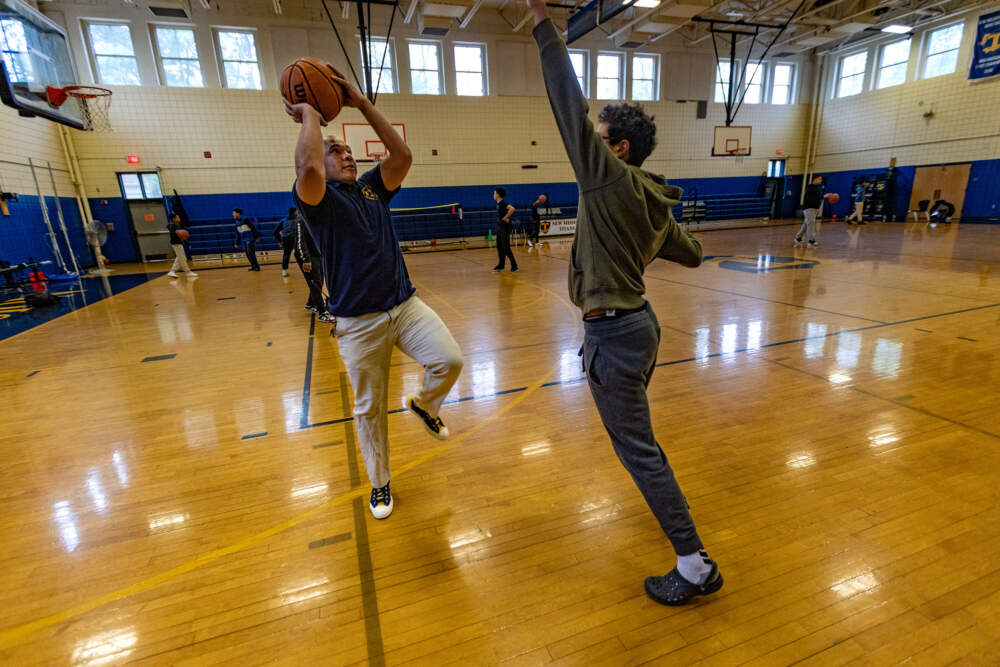
At an April school committee meeting, Boston Public Schools Superintendent Mary Skipper lauded the efforts and stressed the importance of improving attendance among district students.
“We're tapping in, incentivizing with kids, but also making connection with the parents,” she said, adding, “This is one of the biggest issues nationally, statewide, and with us that we just, we have to continue to work on.”
Skipper said the district wants to expand the pilot to more schools in September, noting that it began with Region 8 schools to identify which strategies work and which don't.
Prizes for good attendance
At the Boston Community Leadership Academy-McCormack in Dorchester, school counselor Justine Grace paced around before delivering morning announcements on a rainy Tuesday last month. She explained that many students miss school for a variety of reasons. Some have to help with family matters, she said, acting as translators at medical appointments or helping with child care at home. Others have long distances to travel to campus.
"It could be they have to take two trains, two buses," to reach the school, Grace said.
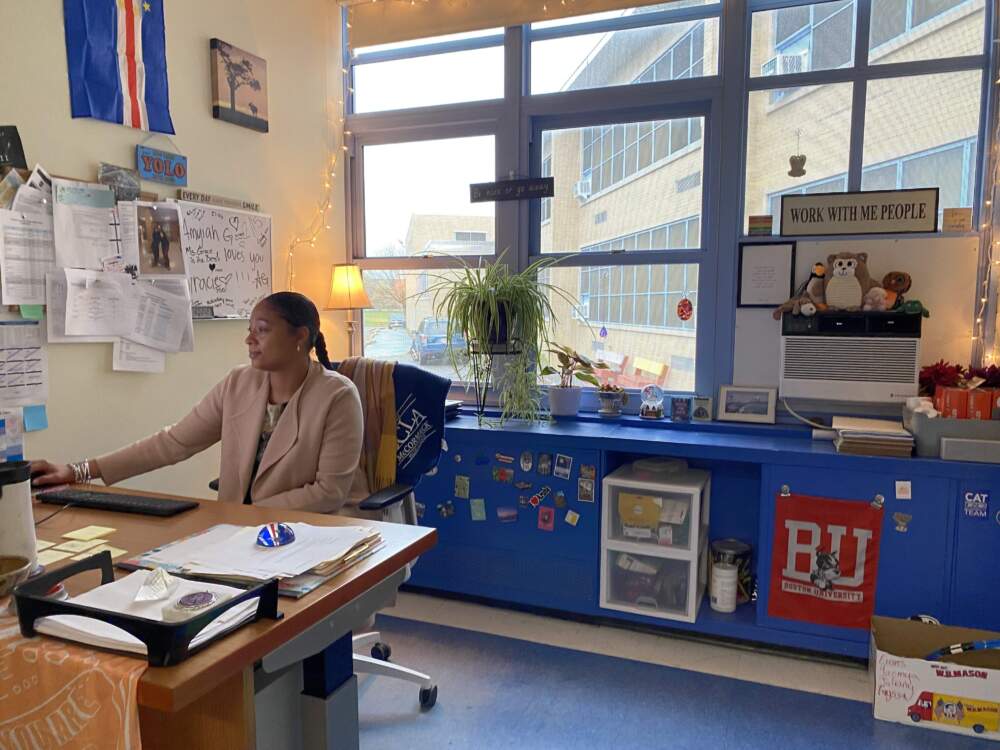
The school serves students in the seventh to 12th grade, and its ninth graders struggle the most with attendance.
In the spirit of the "Win the Day" pilot, the school organized a raffle this month to award prizes, like movie tickets or field trips, for good attendance.
The effort clicked for 15-year-old Essence Loving, a ninth grader, who said she came to school more often to win a class field trip to Apex, an arcade-type entertainment complex and also to receive a “perfect attendance award.”
"Kids want to come to school and have fun," Grace said. "It's a social aspect, and we know it's academic driven, but we need to figure out other ways to get them in the building."
Ninth grader Nathalie Medina said her attendance improved since January after she sat with the school counselor and figured out why she was struggling: it was a matter of adjusting her morning routine and waking up earlier. They formed an attendance contract.
“I was slacking off really bad last year,” Medina said. “I love school and having motivation, and like people [caring] about me being present made me want to come even more.”
Plus, she said if she was late or didn’t come to school, her younger brother in the grade below hers wouldn’t either.
“He would have to wait for me, and that affected him, too,” Medina said. “So he also motivated me to get here on time so that I don't mess up his education.”
This segment aired on May 28, 2024.
